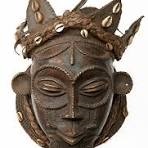
A recent story that appeared in the Guardian newspaper about an extremely rare African mask that was sold to a dealer by a French couple for only 150 Euros only to discover that it was worth millions have had a request to cancel the artifact sale, a case that thrown out in court had claimed the headlines. According to the newspaper, “the couple, in their 80s, sold the wooden mask in September 2021 to a secondhand goods dealer as part of the sale of a number of antiquities including African artifacts that they had kept in their secondary home in southern France.”
The report went on to say that the object had belonged to an ancestor who was a colonial era governor in Africa, and they believed they were of little value. A couple of weeks back, I had written an article on the fate of African ancient artifacts that have great historical, artistic and cultural values and some of which are kept in European museums or in private homes as relics of the colonial era that saw the disappearance of an estimate 600,000 relics dispersed all over Europe and even beyond the old continent.
For those of you who do not know what these masks are good for, here are a few explanations that can help us grasp the value of these artifacts. Generally or more commonly speaking, the term ‘mask’ has different definitions. The Merriam Webster dictionary defines a mask as 1-a cover or partial cover for the face used for disguise, 2- a person wearing a mask is called a masker 3-figure of a face worn on the stage in antiquity to identify the character and project the voice or a grotesque of false face worn at carnivals or in rituals.
These are of course definitions of ordinary masks. The origin of masks or the wearing of masks goes back to the 16th century, when the world “mask” appeared in English in 1530 from Middle French mask “covering to hide or guard the face”. The term is known to have been derived in turn from the Italian “maschera” or from medieval “mask, specter, nightmare”.
We are not here dealing with the etymology of the term but its evolution from a simple cover for the face to one that is loaded with symbolism and meaning deriving from its particular use. African traditional mask has for instance a very serious meaning because, “In some African cultures, a spirit inhabits a mask upon its creation. When a man (or on rare occasions, a woman) puts on a mask and costume, hey give up their own being. The identity of the spirit takes over.”
In traditional Africa, mask is worn “during celebrations, dances and festivities and rituals ceremonies commemorating social and religious events. They play a very significant spiritual and functional role in the community and often there is no distinction social recreation and ritual celebration.” The value of African masks is derived not from its use value but from its scarcity, that is to say from the fact that it is not easily found in the market or in private homes in even in museum although relics there are not for sale but for contemplation and appreciation.
What makes the African mask in the above story such an important item that attracted international media attention is obviously its rarity. According to the same newspaper, “The auctioneers described it as “an extremely rare 19th century mask, property of a secret society of the Fang people in Gabon, an ethnic Bantu group, with only 10 such objects still in existence. One auction house official was reported as telling a French TV that, “This type of mask is even rarer than a Leonardo da Vinci painting.”
Look at this! A 19th century African mask with higher value than a Leonardo da Vinci painting! That is incredible to say the least. Few are not the so-called art experts who often attribute far less value to ancient African artifacts in general and the masks in particular, in their ill-informed or arrogant attitude towards a culture they often consider inferior to theirs. As we said above, what makes an African artifact more important than the best painting by the best European renaissance painter is not its use value but its market value that results from the rarity of the object together with its rarity deriving from its symbols and meanings.
The African mask in question created such a controversy in court because the couple that sold it realized its market value only after they sold it and saw that it was worth more than their original price of 150 Euros. The mask had been in their possession for almost two centuries but they could not see its significance because they likely considered it as a piece of old and useless item that had no significant and they should thereby get rid of it by throwing it out to a buyer who offered them a price that was better than throwing it into the garbage. They did not even stop and think why their ancestor kept it at home in the first place or they did not respect the memory of their ancestor who took the pains to bring it back from such a distant place that was a French colonial possession at that time.
From the story, one can gather that the old couples are culturally ignorant although they are members of a “civilized” society that has taken away by hook or by crook an item that belong by right, to a “backward” African community they despised and undermined at that time but went to court now only when they realized that they were in possession of a very valuable piece of African history.
The couple may not be accused of selling the item because they did not bring it from the African colony. Neither is the dealer responsible for the sale of the item because his job is to buy and sell such items. However, the court should at least have conducted an investigation as to the origin of the mask and how it found its way in the houses of the buyers and sellers.
Such an investigation may not lead to the reclamation of the item by concerned third parties because there might definitely be no law prohibiting people from owning or selling old relics from Africa probably stolen or bought at dirt cheap price. There must be others items similar to the African mask in question that are still hidden in private homes or forgotten by their owners like the couple in the story. To begin with, French museums should be the sole collectors of such items because they represent the history of colonialism which is also their history.
The best option would be to buy such items from private collectors and put it in the museum and then ask the pertinent African authorities whether they would like to reclaim it because former officials from a former European colonizing nation then still bear a moral, if not a legal, obligation, to return the looted artifacts to their legitimate and original owners. What is more disturbing is the fact that the concerned or relevant African authorities are looking on with a degree of impartiality as their historical relics that were stolen from Africa are being claimed and reclaimed by illegal possessors disputing not the question of ownership but that of cost in the market.
Meanwhile the protest by the Gabonese community in southern France against the auctioning of the mask was a courageous and responsible action although the court has thrown off their appeal. They demanded the return of the mask to its legitimate owners, i.e. the people of Gabon. By doing so the French court has made the mistake of not identifying the real and original owners of the items knowing full well that neither the couple nor the art collector are the legitimate owners. The Gabonese government has also protested against the court ruling following the protest by the Gabonese community in south France.
Where is the African Union’s cultural committee in all this? Although it is given the authority to fight for the return of African lost artifact back to the continent, there is no protest or appeal by the AU against the ruling by the French court. With added pressure from the AU, the court ruling might have changed its mind and returned the artifact to Gabon. This has not happened simply because Africans are not yet united in reclaiming their history and their legacy. What one Gabonese official told The Guardian stands out as a remarkable protest statement against the indifference of African institutions that should have come out to defend his position.
The statement by the Gabonese official is worth quoting here. He said that, “Today, this court case is about the grandchildren of the governor versus a second hand dealer. But neither of them is legitimate in terms of this mask. What we want is the restitution of this mask to Gabon.” The man went on to say that, “the mask has a soul. it was used to establish justice in our villages. The discussion in court has been about morality, but how about the morality of the spoliation of works of art and our dignity? Where is the morality in that?”
There are many cases of Africa’s soul being put for legal niceties in dealing with art spoliations. The case of the African mask will not be the first or the last in claiming media headlines although justice may not be served in the case of the mask which was the symbol of justice in its glory days.
BY MULUGETA GUDETA THE ETHIOPIAN HERALD THURSDAY 4 JANUARY 2024





